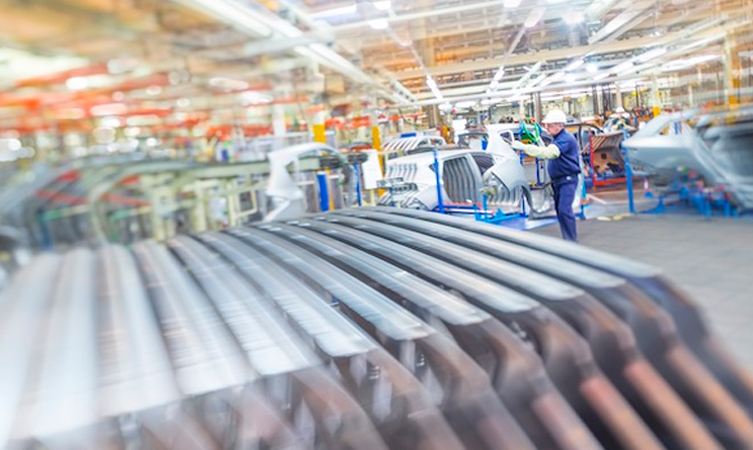Discover the 12 other pillars of the Toyota Production System:
Konnyaku Stone
Poka-Yoke
Hansei
Andon
Jidoka
Just-In-Time
Heijunka
Kaizen
Genchi Genbutsu
Nemawashi
Kanban
Muda, Muri, Mura
Genba
Eliminating waste is the key to efficiency – in the Toyota Production System, this is termed as Muda, Muri and Mura. Read on to see our explanation.
Muda means waste and refers in management terms to a wide range of non-value-adding activities. Eliminating waste is one of the main principles of the Just-in-time system, the main pillar of the Toyota Production System. Considered as waste are unnecessary financing costs, storage costs, worthless stock of old items etc. Muda of overproduction and Muda of Inventory are the most common ones.
Muda (English: Waste) In management terms it refers to a wide range of non-value-adding activities. Eliminating waste is one of the main principles of the Just-In-Time system, the main pillar of the Toyota Production System. Considered as waste are unnecessary financing costs, storage costs, and worthless stock of old items.
Toyota divides Muda into seven resources that are frequently wasted: 1) Transportation — a cost that adds no value to the product but increases the risk of a product being damaged, lost or delayed; 2) Inventory — a capital outlay that if not processed immediately produces no income; 3) Motion — any damage inflicted through the production process, such as normal wear and tear in equipment, repetitive stress injuries, or by unforeseen accidents; 4) Waiting — products that are not in transport or being processed; 5) Over-processing — when more work is done than necessary, or when tools are more complex, precise or expensive than necessary; 6) Over-production — larger batches or more products being made than is required; and 7) Defects — the loss involved in rectifying faulty parts or products.
Muri (English: Overburden): Eliminating overburden of equipment and people is one of the main principles of the Just-In-Time system, the main pillar of the Toyota Production System. To avoid overburden, production is evenly distributed in the assembly processes.
It is the second of three types of waste highlighted within the Toyota Production System, requiring the balancing of manufacturing pace to allow members sufficient time to achieve the correct standard of work. A reduced time frame will be too burdensome to achieve the objective, while the allowing of too much time is a waste of resource.
(Related: Takt Time [derived from German word Taktzeit, or ‘cycle time’] — matching the pace of production with customer demand and the available work time).
Mura means unevenness (irregularity or variability). Eliminating unevenness or irregularities in the production process is one of the main principles of the Just-in-time system, the main pillar of the Toyota Production System.
Mura (English: Unevenness or irregularity): Eliminating unevenness or irregularities in the production process is one of the main principles of the Just-In-Time system, the main pillar of the Toyota Production System.
The third of three types of waste mentioned within the Toyota Production System, notably identified and leveled through the application of Heijunka principles and Kanban devices. Workflow is also smoothed by requiring members to operate multiple machines — also known as ‘multi-process handling’ — within any particular process, and by predicting and preparing for times of high demand.
The quest for ultimate efficiency is also embodied in a Poka-Yoke, or mistake-proofing, mechanism read about it here.
See our full Toyota Production System glossary here.





This post represents other forms of waste that are frequently overlooked.